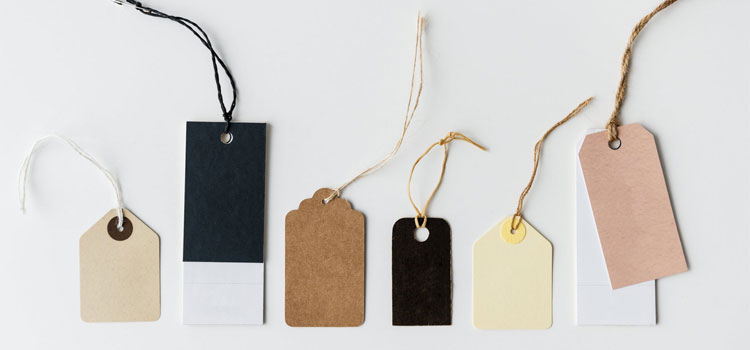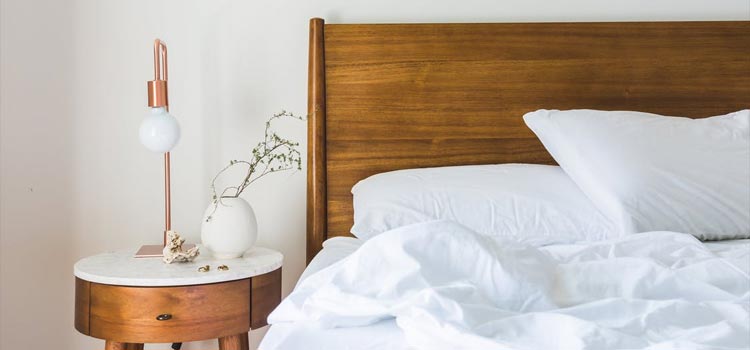If you’re interested in becoming an entrepreneur and starting your own online business, but you have no products to sell and no way to produce them, then private label products might be the perfect solution.
- Inbox Dollars - Get paid to check your email. $5 bonus just for signing up!
- Survey Junkie - The #1 survey site that doesn't suck. Short surveys, high payouts, simply the best.
- Nielsen - Download their app and get paid $50!
It’s one of the cheapest ways to get a startup business off the ground.
Both companies and small businesses alike have been selling private label products for years, even if you didn’t realize it because they were right under your nose the whole time!
Now, thanks to the many new avenues of job creation that have opened up thanks to the internet, people have started selling their own private label goods online – right from their own homes.
Plus, the way this system is structured is ideal for those looking to sell products online because you don’t have to manufacture your own goods and you can’t end up with too much stock if you don’t order too much at a time.
If this has gotten you excited to start your own thing then read on to find out how you can enter the private label game.
What is a Private Label Product?
Private label goods are created by a manufacturer who doesn’t sell their own products.
These goods are then sold by another company who puts their own brand name and packaging design on the products.
The company who sells the products are allowed to do so through an agreement with the manufacturer.
Private label products don’t just include physical products, either. They can also include abstract products and services like insurance or medical schemes.
For the most part, though, those who are want to start their own business with private label products usually go for physical goods as it’s easier to get into that type of market and there’s a bigger demand as well.
Examples of Private Label Products
A few examples of private label brands include artists who sell their own art printed on things like t-shirts or pencil cases, stores who sell their own brand of products like Target’s Archer Farms brand, and restaurants who sell their own brand of sauces or oils.
None of these people/businesses created the products themselves.
Instead, they paid an already established manufacturer to start producing the goods for them.
There are even a few hugely popular brands that fall under the private label classification too, like Nike. (If you were surprised by that, you’re not alone. I wasn’t expecting them to be on that list either).
Though it looks like their manufacturer – who also makes clothes for Zara and Abercrombie & Fitch – are now looking to get into the branding game too.
How do you find private label products?
Before getting started, it’s important that you know this isn’t a side-hustling opportunity that will quickly help you earn a few extra bucks.
It’s exactly the same as starting any other business; you have to put in the time and effort to make it a success.
If that’s not what you’re looking for, then have a scroll through the other posts on here. I have tried, tested, and researched plenty of easy side-cash opportunities over the years that might suit your needs and skills.
Now, let’s get to the good part:
One of the first things you’ll have to do before setting up your own private label brand is finding a great product to sell.
In case good product ideas are in short supply, then have a look at places like Kickstarter for inspiration. You could also try Etsy and Amazon to see what people are buying right now.
If you’re able to, it also helps to do a little market research. Talk to family, friends, or put up online polls and ask around to see what people are looking for.
No joke. Here are the fastest ways to make easy money online. Click here to see how.
The Best Private Label Products to Sell
The most ideal private label products are goods that are small and easy to ship, won’t break easily, and are high in demand.
Categories that do really well:
- Clothes and Accessories
- Cosmetics
- Skincare
- Supplements
- Phone Accessories
- Water bottles
Don’t let these categories dictate your choices, though.
If you find a niche that you think will do good then go for it.
How to Sell Private Label Products
Selling private label products is a three-parter. Well, at least, I broke it up into three broad categories that can be broken into smaller goals to put on your to-do list.
You’ll first need to find a manufacturer, of course. Without this, you’re pretty much not getting any goods to sell.
Secondly, you’ll want to get the marketing and packaging design out of the way. There are plenty of ways, both cheap and expensive, to do this.
Finally, you’ll have to find a place to sell your goods. Some people opt to build their own website and grow it from there, while others choose online shops like Amazon.
Below are some tips on all three these aspects of starting up a private label business.
1. Find a Manufacturer
This can be tricky if you’ve never worked with manufacturers before, as there’s a lot to consider.
But the best advice I can give you here is that you should make sure you’re getting a good price per batch of items. Also, make sure that they don’t talk you into taking bigger batches than you can or should.
Negotiation is very much an open possibility, which means you can (and really should) try to negotiate a good price and batch size.
There are private label manufacturers in the US and Canada, but it might be hard to find one that fits your pocket. If you want to use the cheapest option available, then look at a supplier like Alibaba from China.
Their website makes it easy to find the items you want and they usually have a great variety of products in every category.
It will take around two weeks or longer for them to ship the goods to you, however, so that’s something to keep in mind.
2. Design the Face of your Business
The packaging of your products and the branding you use to market your business is what will draw people in and make your products recognizable.
It’s really important to nail this part so it is better to splurge a little here on a professional designer.
But, if money is tight, then you don’t have to spend a lot to make your business stand out. There are online places like Fiverr where you can hire people for reasonable prices and websites like Canva that’s free and easy to use but helps you produce amazing content.
3. Sell Private Label Products on Amazon
Amazon is a great option for selling private label brands because there’s already a huge market for it there. So you could consider making Amazon your “business partner” and setting up shop to get heaps of organic exposure.
You can make money from home and it doesn't have to be challenging. Click here to see how.
Plenty of small businesses are already selling on Amazon and it’s a great way to check out the competition.
Hell, some people simply opt for searching out private label products on the website and then selling those same products with better packaging and marketing tactics.
It’s worked out for them, so if you’ve got some great marketing skills then this is a solid option.
If you’re open to the idea of selling on Amazon but have no clue on where to get started then have a look at Amazing Selling Machine and whether their training course might be right for you.
Selling Private Label Products on Other Stores
Our vast internet is wonderfully diverse enough that Amazon isn’t the only option out there for people who want to sell private label products. Other options include the classic online independent sales site, eBay or China-based AliExpress (only open to China, Russia, and a few other Asian countries).
The products you sell might not be especially unique, but you can use some out of the box thinking to get them sold.
In fact, I would say creative selling could be the line between success and failure for a private label business.
Don’t be afraid to take an outside the box approach to where you decide to sell either.
The Bottom Line
The whole idea behind selling private label products is that you don’t have to create the things you’re selling yourself.
For those of us that don’t possess a lot of creativity when it comes to making things, this is the best solution to starting our own online business.
Those of you who do like to make your own art or crafts, however, should consider making and selling your own things online instead – as that’s a very lucrative industry right now too.
Either way, let us know what you decide to do – we always love hearing more about your new ventures.





